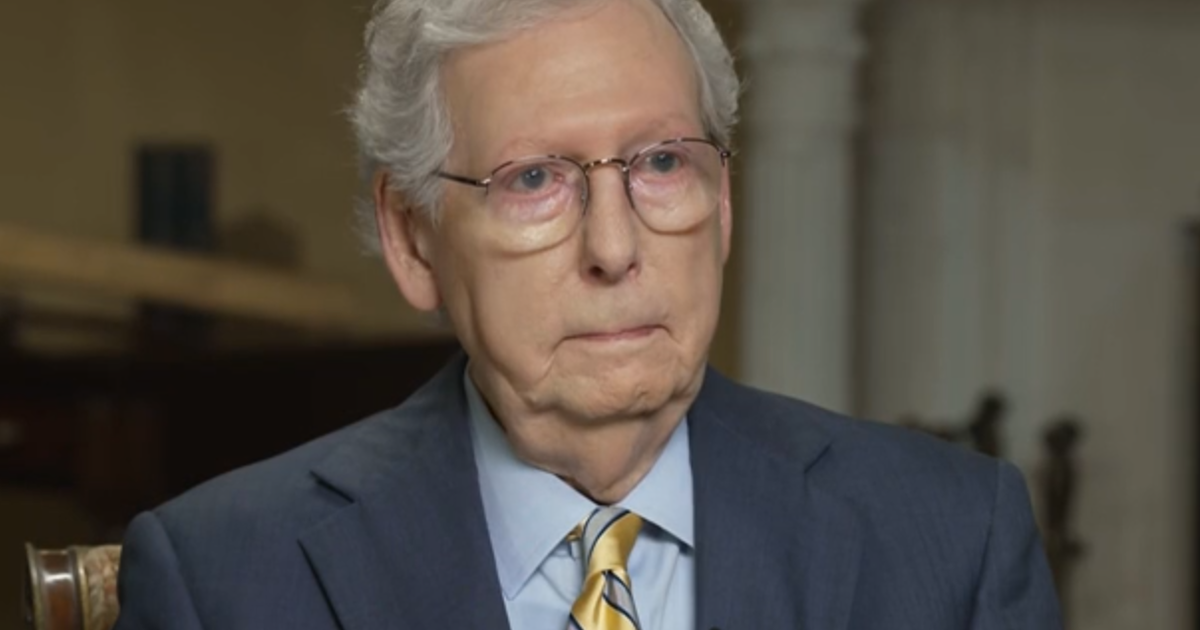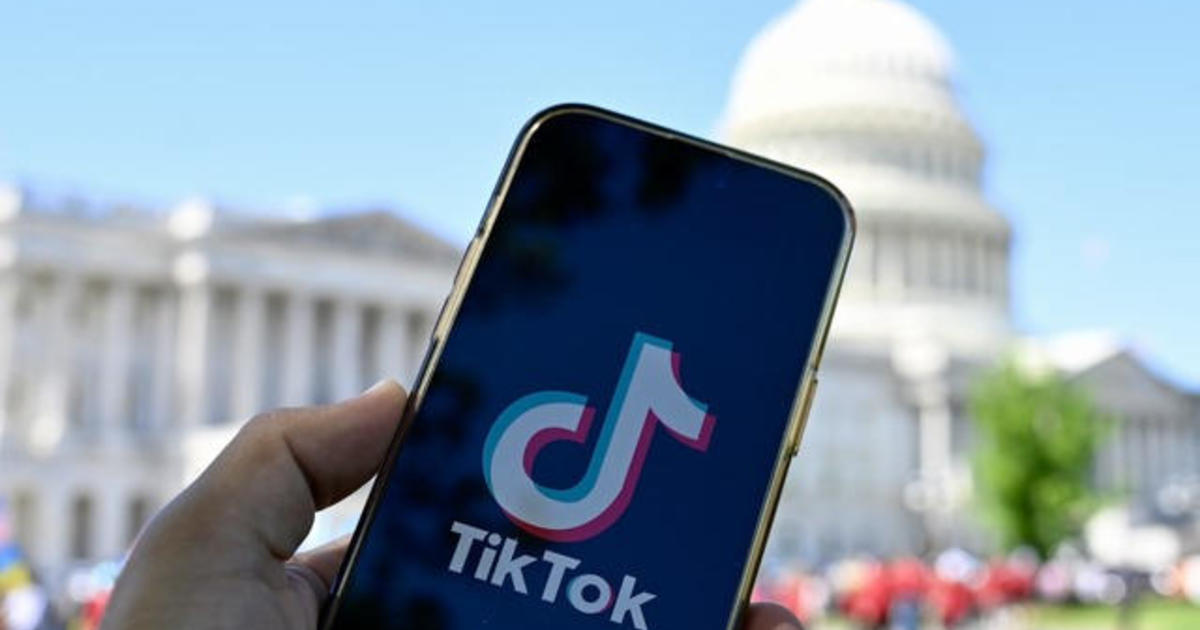Transcript: Education Secretary Miguel Cardona on "Face the Nation," Aug. 21, 2022
The following is a transcript of an interview with Education Secretary Miguel Cardona that aired Sunday, Aug. 21, 2022, on "Face the Nation."
MARGARET BRENNAN: Good morning to you, Mr. Secretary.
EDUCATION SECRETARY MIGUEL CARDONA: Good morning.
MARGARET BRENNAN: This is a busy time of year for you, no doubt. President Biden said America's students are on average two to four months behind in reading and in math because of the pandemic. Now, we also have this teacher shortage. And in some states, like Missouri, a number of districts are shortening the school week to just four days. How much additional learning loss will happen because of the shortage?
SEC. CARDONA: Well, you know, first of all, I'm excited about the beginning of the school year. This is a year full of promise and opportunities for students who have, for the last two years, put up with too much. And thanks to the American Rescue Plan, the dollars are there to make sure that we can open up our schools with sufficient educators. Our students need more, not less. So when I hear reports of districts shortening up their week, it concerns me. Our students need additional support. They need smaller class sizes. They need tutors. They need after-school programs. So let's use the American Rescue Plan dollars to bring back retired teachers, to work with universities to make sure that our student teachers are starting a little bit earlier into their profession, using the dollars that were put forward by the federal government. We think it's important that our students get more this year, not less.
MARGARET BRENNAN: Well, Americans have pumped billions of taxpayer dollars over the past three years into schools through emergency programs. You mentioned one of them. Can the federal government force governors to reallocate those funds? I mean, how do you actually get governors to do what you're asking them to do?
SEC. CARDONA: Right, you know, it's not really about forcing. It's about working with them. And since we started this administration, we've worked closely with our states to recommend and allow for these funds to be used to address the issues that they're facing. But let's face it, this teacher shortage is a symptom of something that's been going on for longer than the pandemic, and that's a teacher respect issue. Unless we're serious about providing competitive salaries for our educators, better working conditions, so that they can continue to grow, and then including teacher voices in this process of reopening and reimagining our schools, we're going to constantly deal with shortage issues, especially in our areas that are harder to teach or where there are less candidates, like bilingual education administration. We need to focus on this together as a country. I've heard across the country that parents just want their children to return back to school with a strong program with qualified teachers.
MARGARET BRENNAN: Is it really just about money? Is it really just about salaries?
SEC. CARDONA: It's definitely not just about salaries. But let's think back the last couple years, you know, our educators have bent over backwards. We went from totally in-person learning to remote learning overnight. Yet, the pandemic really pushed many of these educators out of the profession, because in many cases, you know, educators were not being respected when schools had to close. It created some tensions in our schools. We need to make sure we're supporting our educators, giving them the working conditions where they feel connected to the community and feel supported in the work that they're doing. Critically important work. As I said, before, talking to educators, students and parents, they recognize the importance of our schools and them being open full time. We need to make sure we're continuing to invest not only money, but respect and partnership with our schools.
MARGARET BRENNAN: But in the meantime, it's a matter of what's best for students. And I want to ask you, we are seeing districts change the qualifications so that instructors can be there in class. Oklahoma eliminated a general education test certification requirement. Arizona now allows people without a college degree to begin teaching before they graduate. In Illinois people can teach in a classroom with just 90 hours of college education. This looks, Mr. Secretary, like the standards and quality of American education are being lowered.
SEC. CARDONA: Right, you know, and it's unfortunate. Our students need more now, not less. And while I understand that there are issues getting qualified educators into the classroom, we've been working really closely with our states to give them not only the resources, but the ideas on how to help address the short-term issue and incentivize–
MARGARET BRENNAN: Do you support these ideas?
SEC. CARDONA: I do not support lowering any standards for qualifications with teachers. I think we need to be creative in how we get the teachers in. For example, student teaching is four months of teaching without pay. I think we should use the American Rescue Plan dollars to get student teachers and give them a salary. Many people are leaving the profession or training- the training programs for the profession because they cannot afford four months of teaching without salary. I think we need to raise the bar on making sure teachers are getting paid what they're due. You know, the teaching profession, college graduates earn, on average 33% less than other college-educated programs or other college-educated jobs. That's unacceptable. In the last 25 years, when you adjust for inflation, teachers have made only $29 more than they did 25 years ago. We need to do better there. And that will address some of the shortage issues.
MARGARET BRENNAN: Are you looking at targeted debt relief, student debt relief for those teachers who are in programs like you just mentioned?
SEC. CARDONA: Certainly, you know, the Public Service Loan Forgiveness Program is up and running. We- we provided a waiver for one year to widen the net of people that can take advantage of that. So for those of you who are listening, studentaid.gov, checkout to see if you're eligible now for student loan relief. If you're a public servant, and you've worked for 10 years, you should have your loans forgiven. We want to make the process simpler, but we're also focusing on making sure the loan forgiveness that we're providing goes to those folks who have been taken advantage of by their institutions. All total, Margaret, $32 billion since day one of this administration in loan cancellation for those who either have total and permanent disability, those who have been taken advantage of by their institutions of higher education. We're not slowing down. We want to make sure that college is more accessible and more affordable for Americans across the country.
MARGARET BRENNAN: Do you have a decision for us then on what's going to happen at the end of this month for families budgeting in terms of whether there will be a suspension of some of those student debt programs?
SEC. CARDONA: Sure, I don't have a decision for you today. But what I will tell you that daily, we're having conversations about this, and the American folks will hear it before the end of the month.
MARGARET BRENNAN: We spoke to the superintendent of Los Angeles School District just last Sunday, and he told us that there are roughly 10 to 20,000 children who are just simply missing. No idea where they went. How widespread is this problem of- of lost children in American school systems?
SEC. CARDONA: You know, it's a- it's a concern, not only in Los Angeles, but in other parts of our country, in particular urban centers where we know the pandemic impacted urban centers, where their density is- is higher. Many families moved out of cities. So the work that I've seen happening across the country that I'm really proud of is the work where districts are now hiring folks to work as community liaisons, family liaisons, where they're knocking on doors, finding students, bringing them back into the classroom, re-engaging them. It is an issue. And I'm proud to see that in different parts of our country, we see districts that are really focusing resources, using the American Rescue Plan dollars to find those families and more importantly, give them the support that they need. Oftentimes, it's not just education, you know, the families falling on hard times, or they have- they've had loss in their family. So providing the support that they need is something that we're encouraging our schools to do. And we look forward to getting those students back and getting those families back into the classroom.
MARGARET BRENNAN: When I spoke to you a few months ago, you pointed out the drop in enrollment specifically of the youngest Americans, kindergarteners, preschoolers.
SEC. CARDONA: Yes.
MARGARET BRENNAN: I know that the CDC has loosened some of the guidelines for schools when it comes to COVID health guidance. Each district decides its own policies. But right now, we are seeing COVID spread. We are seeing monkeypox spread among children. Why isn't the Biden administration hosting town halls, informing people more directly, instead of having these very confusing and changing CDC guidelines?
SEC. CARDONA: Well, you know, as a father myself, my children's safety is my priority. And it's the priority for me that all students are safe and- and can go to school healthy. That's why we've been fighting from day one to increase vaccination efforts, to make sure that the schools have the tools for the mitigation strategies that they need, that we have information. Last week, I spoke to Dr. Walensky and Dr. Jha from the White House, about this upcoming school year and we feel very optimistic that it's going to be a great year, that families shouldn't be worried right now about monkeypox, and that we have the tools that we need to give students vaccination to keep them safe in our schools. Look, the only thing students should be worrying about right now is making friends on the blacktop. I don't want families or schools to be thinking that they have to think about monkeypox the way we thought about COVID two years ago. We have better tools. We have what we need to make sure our schools can open safely. I want our families thinking about how this year is going to be a better year than last year. We have better tools, better resources, and we should expect a better school year for our students and our families.
MARGARET BRENNAN: Mr. Secretary, I think we all hope for that. Thank you for your time.
SEC. CARDONA: Yes. Thank you.



